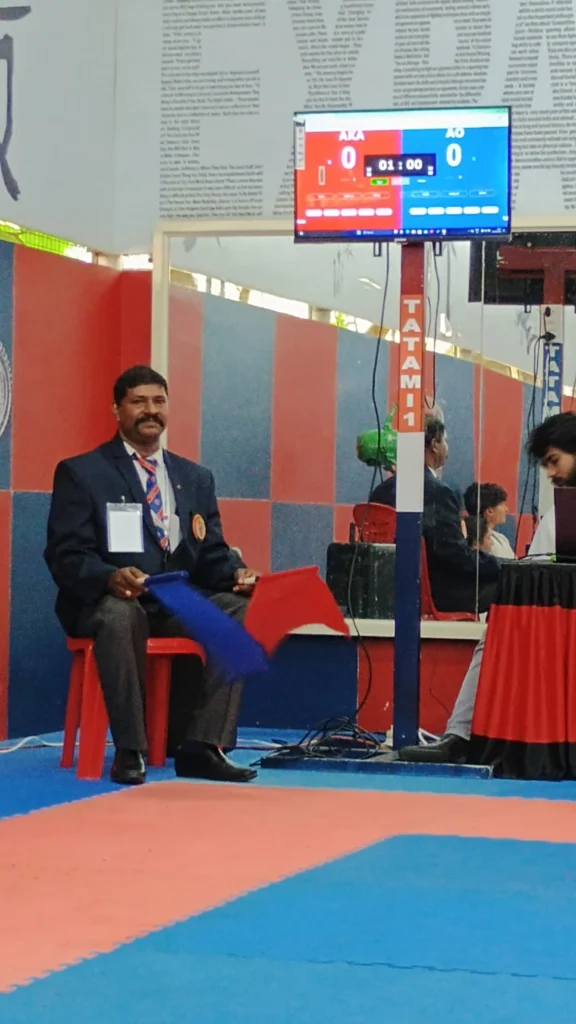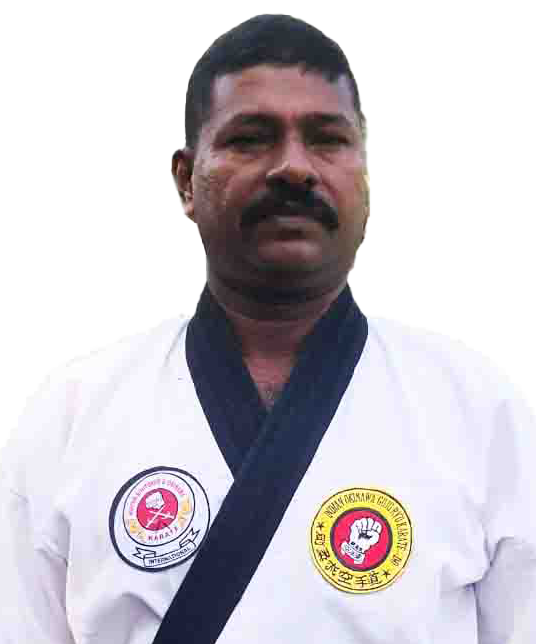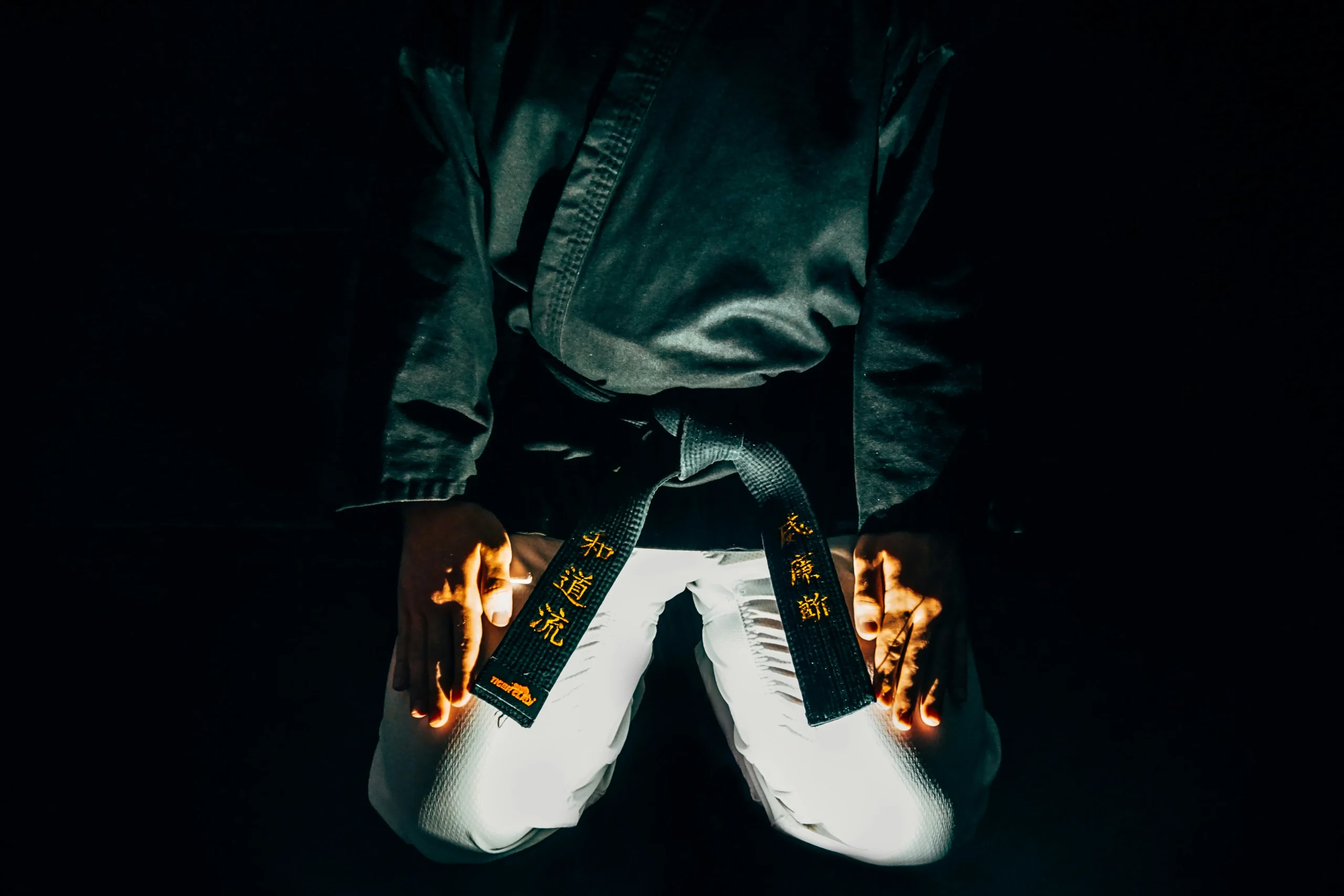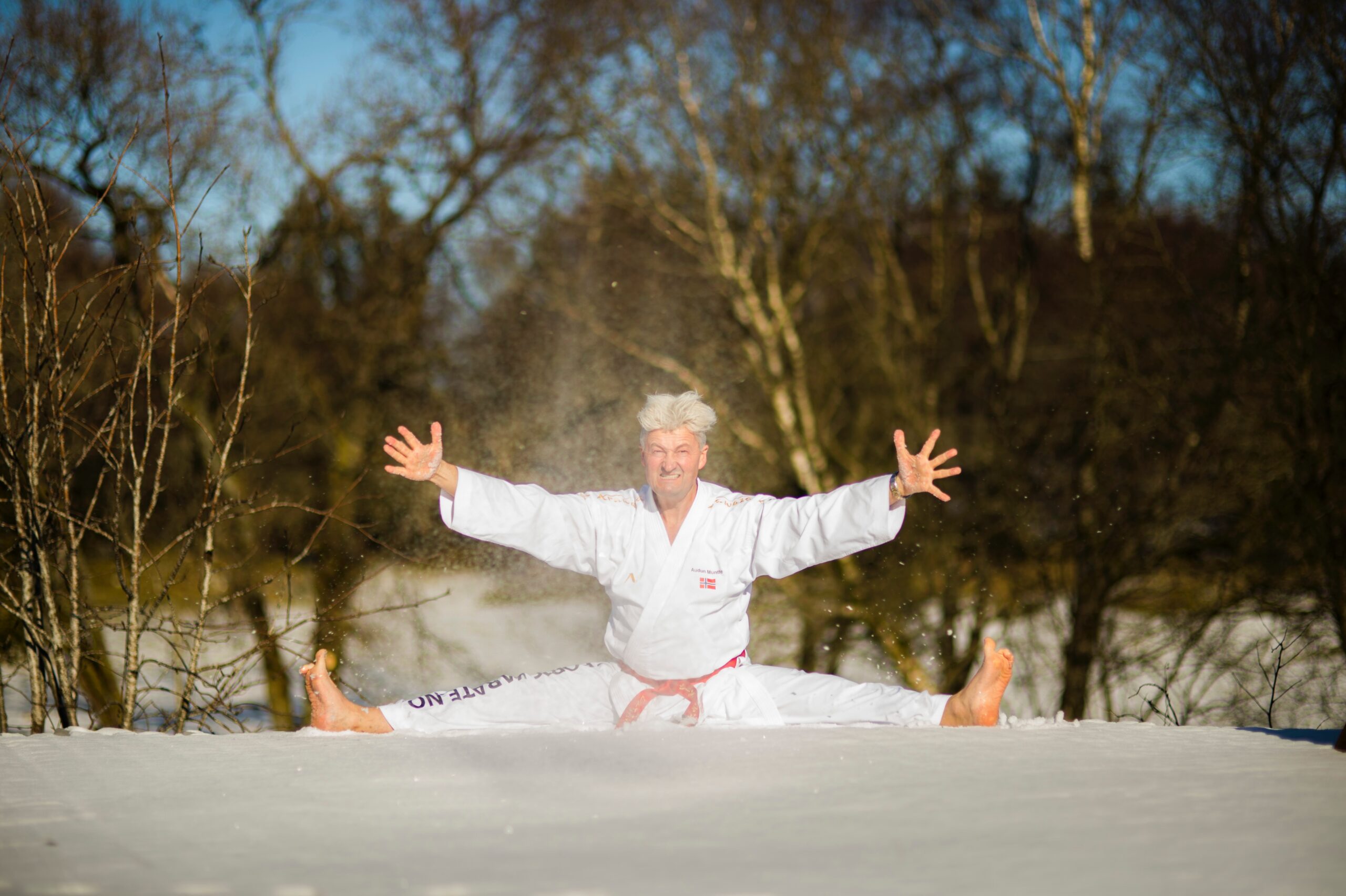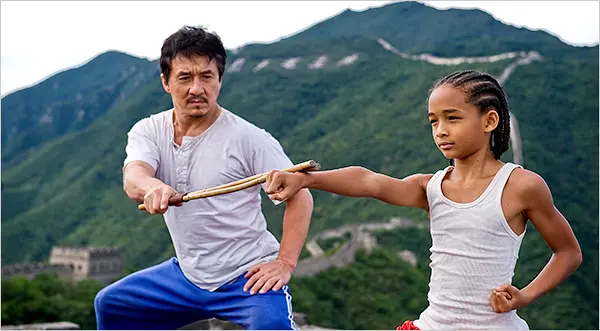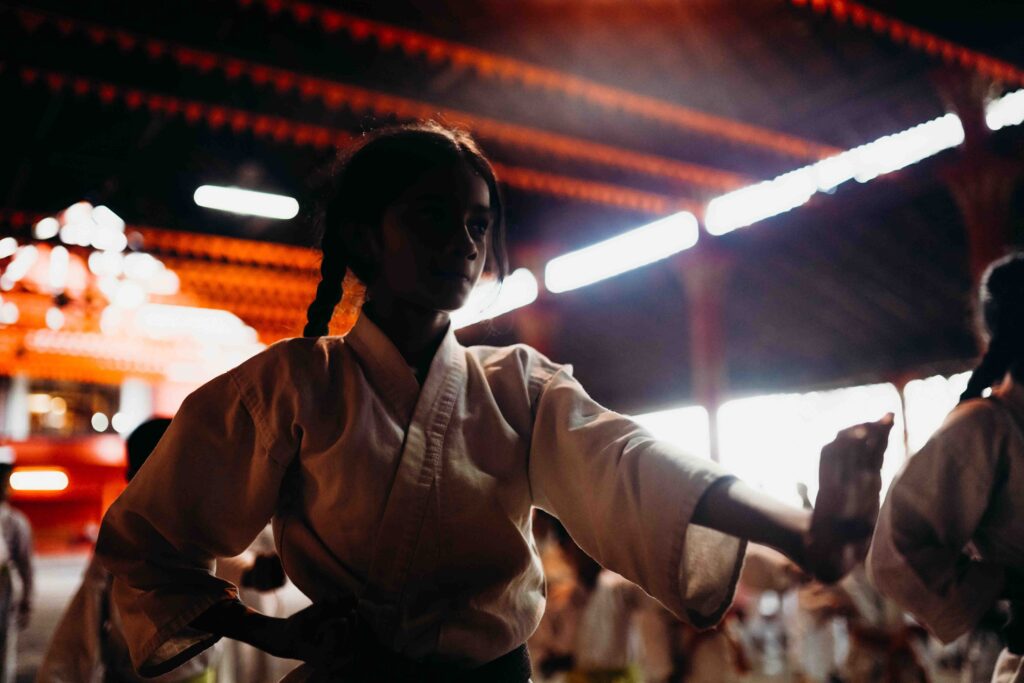
Table of Contents
ToggleUnderstanding the Ranking System in Karate
Karate, a discipline deeply rooted in tradition, employs a structured ranking system that signifies a practitioner’s level of skill and knowledge. This system is primarily divided into two categories: ‘kyu’ and ‘dan’ ranks. The ‘kyu’ ranks represent the grades for students who are yet to reach black belt status, while ‘dan’ ranks indicate advanced levels, typically starting from the first black belt onward.
Beginners usually start at a white belt, which corresponds to the highest ‘kyu’ rank. As practitioners train and develop their skills, they progress through various colored belts, ultimately earning a black belt when they reach the highest ‘kyu’ rank. These colored belts symbolize the practitioner’s progress and commitment to the art. Each transition from one ‘kyu’ rank to another requires demonstrations of skill, knowledge of techniques, and often participation in examinations or competitions.
Once practitioners achieve the black belt status, they enter the ‘dan’ ranking system, which further distinguishes their expertise. The ‘dan’ ranks are numbered, starting at 1st dan and progressing upward. As practitioners continue training and contributing to the karate community, they may attain higher ‘dan’ ranks, each representing years of dedication and mastery. The distinction between ‘kyu’ and ‘dan’ ranks not only reflects an individual’s skill level but also their understanding of karate’s philosophy and techniques.
As we explore the title of ‘Shihan,’ it becomes essential to understand these ranks, as they lay the foundation for recognizing the prestige associated with various titles within the martial arts community. Title designations in karate enhance the understanding of a practitioner’s journey and influence their role as mentors and leaders in their respective dojos.
The Meaning of the Term ‘Shihan’
The term ‘Shihan’ is a Japanese word that translates directly to ‘master instructor’ or ‘teacher of teachers’. In the context of martial arts, particularly karate, this title signifies a level of proficiency and respect that is both acknowledged and revered among practitioners. When someone is designated as a Shihan, it is an indication that they have undergone extensive training and attained a profound understanding of karate techniques, philosophies, and teaching methods.
<p’within ‘shihan’=”” a=”” also=”” an=”” and=”” arena.=”” arts=”” as=”” authorities=”” be=”” bestowed=”” both=”” but=”” by=”” can=”” capable=”” carries=”” community,=”” discipline.
The implications of being recognized as a Shihan extend beyond proficiency in martial arts. This title embodies a commitment to the ongoing development of practitioners, ensuring that the knowledge and traditions of karate are preserved and passed down through generations. Moreover, a Shihan is often a figure of inspiration within their dojo, bridging the gap between advanced techniques and the foundational aspects of karate that new students must learn.
In essence, achieving the status of Shihan represents not only personal accomplishment but also a collective responsibility towards the karate community, fostering growth and respect among its members. The title thus serves as a guiding principle for those who aspire to elevate their practice while cultivating the next generation of martial artists.
Historical Context of ‘Shihan’ in Martial Arts
The title ‘Shihan’ has a rich historical significance within the realm of martial arts, particularly in Japan. Originating in the traditional Japanese schools of martial arts, the term serves as an acknowledgment of mastery and expertise. Historically, ‘Shihan’ was bestowed upon those who demonstrated not only a high level of technical skill but also a profound understanding of the philosophical aspects of martial arts. This historical context is pivotal, as it highlights the evolution of the term and its deep-rooted connection to Japanese culture and discipline.
<p’ ‘ryu,’=”” ‘shihan’=”” a=”” ability.=”” adoption=”” ages=”” also=”” an=”” and=”” arts=”” as=”” but=”” connotative=”” did=”” different=”” dojos,=”” due=”” during=”” each=”” early=”” emerged,=”” evolved,=”” excelled=”” future=”” generations.
Throughout the years, the usage of ‘Shihan’ has been formalized across various martial arts disciplines. Though originally associated with classical Japanese martial arts, the term has increasingly been adopted in contemporary martial arts schools worldwide. Its application reflects not only technical prowess but also the integrated values of respect, responsibility, and mentorship. The evolution of ‘Shihan’ serves as a testament to the enduring legacy of martial arts pedagogy, emphasizing that mastery is as much about skill as it is about passing on wisdom and cultivating the next generation of practitioners.
Criteria for Achieving the Title of ‘Shihan’
The title of ‘Shihan’ holds considerable prestige within the world of karate, signifying a high level of proficiency and dedication to the art. To achieve this respected designation, a practitioner must meet a series of criteria that encompass not only their technical skills and experience but also their contributions to the martial arts community and their role as an instructor.
Typically, one of the primary requirements for attaining the title of ‘Shihan’ is achieving a certain rank within their karate organization. This often means that a practitioner must attain at least a 5th Dan black belt, although some styles may differ slightly in their specific requirements. Attaining this rank demonstrates a significant level of technical ability and understanding of karate principles.
In addition to rank, years of experience play a crucial role in the journey toward becoming a ‘Shihan.’ Generally, practitioners need to have a minimum of 10 to 15 years of consistent training, along with active participation in the martial arts community. This longevity not only reflects dedication but also allows the practitioner to accumulate a wealth of knowledge and practical skill.
Teaching ability is another critical factor in the awarding of the ‘Shihan’ title. A practitioner must demonstrate exceptional teaching qualities, which include the ability to communicate complex techniques and concepts effectively. This involves not just technical prowess, but also an understanding of how best to mentor students of various levels. Moreover, contributing to the karate community—through organizing events, seminars, or competitions—further solidifies a candidate’s eligibility for this distinguished title.
In essence, achieving the title of ‘Shihan’ in karate is a multifaceted process that requires a balance of rank, experience, teaching proficiency, and community involvement. Meeting these comprehensive criteria ensures that the title remains synonymous with excellence in the martial arts world.
The Role of a ‘Shihan’ in Karate Dojos
A ‘Shihan’ holds a pivotal position within the structure of a karate dojo, embodying both authority and mentorship. This title, which translates to “master instructor,” reflects extensive knowledge and experience in martial arts, specifically karate. As instructors, ‘Shihans’ are responsible for teaching students not just the physical aspects of karate but also the philosophy and principles that underpin the art form. They guide students through their martial arts journey, ensuring that each practitioner develops technique, discipline, and respect.
Beyond teaching, a ‘Shihan’ serves as a mentor to students of all levels. This role involves fostering a supportive environment where students can explore their capabilities and grow in confidence. By offering personalized feedback, a ‘Shihan’ imparts wisdom drawn from years of training and practice, inspiring students to reach their full potential. A ‘Shihan’ is often seen as a role model, demonstrating the values of perseverance, integrity, and humility, which are cornerstone principles of karate.
Leadership is another essential aspect of a ‘Shihan’s’ role within the dojo. They set the tone for the dojo culture, establishing expectations for behavior, commitment, and sportsmanship. A positive dojo atmosphere encourages students to engage fully, promoting camaraderie and mutual respect among practitioners. This leadership extends to organizing events, grading examinations, and managing the overall operations of the dojo. A ‘Shihan’ also plays an instrumental role in building a community, often leading outreach programs that introduce karate to a broader audience and enhance the dojo’s reputation in the martial arts community.
In summary, the role of a ‘Shihan’ in a karate dojo is multifaceted, encompassing instruction, mentorship, and leadership. Their influence shapes not only the skills of students but also contributes significantly to the dojo’s culture and values.
Comparison of ‘Shihan’ with Other Martial Arts Titles
The title ‘Shihan’ holds a significant position in karate, denoting a high level of mastery and teaching capability. Similarly, other martial arts employ titles that reflect the hierarchy and respect accorded to instructors who have attained a certain level of expertise. For instance, in Kung Fu, the corresponding title is ‘Sifu,’ which translates to “teacher” or “master.” The term ‘Sifu’ is not merely a designation for someone who has mastered the art; it encapsulates a relationship of respect and mentorship that is central to the learning process within this discipline.
Another commonly known title in martial arts is ‘Sensei,’ often used within the broader context of various styles including judo and aikido. ‘Sensei’ literally means “one who has gone before,” reinforcing the idea of a teacher guiding students on their martial arts journey. Unlike ‘Shihan,’ which is usually awarded to practitioners with a minimum of 5th-degree black belts and extensive teaching experience, the title ‘Sensei’ can be used more broadly, even for those who are early in their teaching careers.
Culturally, these titles reflect not just the level of skill but the philosophy of learning inherent in each martial art. In Japan, the title ‘Shihan’ emphasizes a formal acknowledgment of ‘sensei’ status, coupled with a level of skill that demands respect within the karate community. In contrast, ‘Sifu’ in Chinese martial arts emphasizes a familial relationship between teacher and student, suggesting a mentorship that often extends beyond mere technical instruction. Meanwhile, ‘Sensei’ allows flexibility and adaptability, which is seen in various martial arts disciplines.
Ultimately, while ‘Shihan,’ ‘Sifu,’ and ‘Sensei’ convey respect and expertise, the context of their usage reveals differing cultural backgrounds and philosophies regarding martial arts training and mentorship.
The Importance of ‘Shihan’ in Karate Philosophy
The title ‘Shihan’ holds profound significance within the realm of karate, reflecting fundamental principles that underpin martial arts philosophy. The term translates to “master instructor,” and is not merely an accolade; it encompasses a deep commitment to continuous learning, respect for others, and humility. In the karate community, these attributes are essential, as they contribute to the development of both the individual practitioner and the broader dojo environment.
Respect lies at the heart of the karate tradition. Those who earn the title of ‘Shihan’ are expected to demonstrate respect not only for their instructors and peers but also for the art itself. This respect fosters a harmonious training atmosphere where knowledge can be shared freely and learning can flourish. In this regard, a ‘Shihan’ serves as a role model, embodying the values of gratitude and deference that are vital to karate practice.
Humility is another core principle associated with the title ‘Shihan.’ Despite achieving a level of expertise that allows them to teach others, a ‘Shihan’ must remain open to new knowledge and experiences. This ensures the practitioner continues on their lifelong journey of learning, acknowledging that mastery is not a final destination but an ongoing evolution of skill and understanding.
Furthermore, the personal attributes of a ‘Shihan’—such as integrity, patience, and dedication—reinforce their role as a leader within the dojo. A true ‘Shihan’ cultivates positive relationships with students, encouraging them to progress while instilling a sense of discipline. This mentorship is crucial in nurturing future generations of martial artists and perpetuating the values that karate embodies.
In sum, the title ‘Shihan’ encapsulates more than just expertise in technique; it represents a commitment to the principles of respect, humility, and lifelong learning that define the essence of karate philosophy.
Recognizing ‘Shihan’ in the International Karate Community
The title ‘Shihan’ holds profound significance within the international karate community, transcending its Japanese origins to become a respected designation worldwide. In Japan, ‘Shihan’ is bestowed upon karate instructors who have attained a high level of mastery, typically denoting a black belt rank of 5th dan or higher. This title is not merely an honorific; it embodies a commitment to the art of karate and a dedication to teaching its principles effectively. As karate spread beyond Japan, the understanding and application of ‘Shihan’ evolved, integrating various interpretations depending on the cultural context.
Internationally, numerous karate organizations have acknowledged ‘Shihan’ as a vital component of their rank structures, employing it to signify senior instructors and experts in their respective disciplines. While some organizations strictly adhere to the traditional qualifications recognized in Japan, others have adapted the title to fit local customs and practices. This creates a diversity of meanings and implications surrounding the title ‘Shihan.’ For instance, in some countries, the title may be awarded earlier in one’s martial arts journey, reflecting the local emphasis on teaching and program structure.
Furthermore, the global recognition of ‘Shihan’ helps to foster a sense of unity among practitioners. Events such as international tournaments and seminars often highlight master instructors bearing this title, promoting an environment of respect and camaraderie. It serves to bridge cultural divides, allowing karate enthusiasts from various backgrounds to appreciate and learn from the expertise embodied by the title ‘Shihan.’ Ultimately, regardless of regional nuances, the core essence of ‘Shihan’ remains a symbol of excellence, mentorship, and the pursuit of martial arts mastery.
Conclusion: The Legacy of ‘Shihan’ in Karate
The title ‘Shihan’ carries profound significance within the realm of karate, symbolizing not only mastery of martial arts but also a deep commitment to teaching and mentorship. As practitioners advance in their journey, the attainment of this esteemed title indicates a high level of proficiency and a dedication to preserving the traditions and philosophies of karate. ‘Shihan’ is not merely an accolade; it represents a responsibility to cultivate the next generation of martial artists. Those who attain this title are expected to embody the values of respect, discipline, and perseverance, which are fundamental to karate.
The impact of ‘Shihan’ extends beyond the individual; it resonates within dojos and the wider karate community. Aspiring students often look up to ‘Shihans’ as role models, drawing inspiration from their teachings and life experiences. This relationship fosters a culture of respect and continuous learning, ensuring that the essence of karate is passed down through the ages. In this way, ‘Shihan’ plays a pivotal role in maintaining the integrity and vitality of karate as a traditional martial art form.
Moreover, the title encourages a continuous development mindset, where even those who have reached a high rank remain open to learning and evolving their skills. This dedication to growth creates a dynamic environment that allows both instructors and students to thrive. Thus, the legacy of ‘Shihan’ embodies a holistic approach to martial arts, encompassing not only physical expertise but also ethical adherence and personal development.
In conclusion, the title ‘Shihan’ signifies a legacy of mastery and commitment within the karate community. Its impact is felt in dojos worldwide and instills a sense of purpose in practitioners, promoting the cultivation of future generations dedicated to the art of karate.

